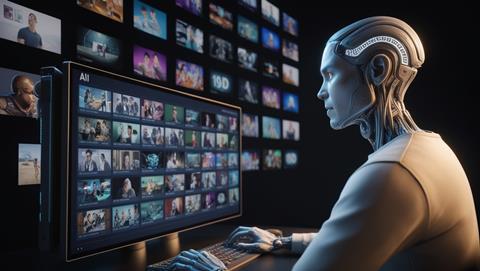Ministers looking to help creative and AI sectors ‘grow and innovate together’
The government is seeking views on how it can ensure the UK’s legal framework for AI and copyright supports both the UK creative industries and AI sector.
A consultation on the usage of copyrighted materials to train AI models is being carried out by the Department for Culture, Media and Sport, Department for Science, Innovation and Technology and the Intellectual Property Office.

It proposes introducing an exception to copyright law for AI training for commercial purposes while allowing rights holders to reserve their right, so they can control the use of their content.
This exception would be combined with transparency requirements that would give rights holders more certainty and control over how their content is used, while AI developers would also gain greater clarity about what material they can and cannot use and ensure wider access to material in the UK.
There is currently uncertainty around how copyright law applies to AI which can make it challenging for creators to control or seek payment for the use of their work, while also creating legal risks for AI firms, which in turn stifles investment and innovation.
Under the proposals, AI developers would be required to be more transparent about their model training datasets and how they obtain them.
Prior to these changes coming into effect, more work would need to be done with both the creative industries and AI developers to ensure any standards and requirements for rights reservation and transparency are effective, accessible and widely adopted.
The creative industry and AI development are central to the government’s Industrial Strategy, and the proposals set out are intended to help drive growth across both sectors.
Culture secretary Lisa Nandy said: “This government firmly believes that our musicians, writers, artists and other creatives should have the ability to know and control how their content is used by AI firms and be able to seek licensing deals and fair payment. Achieving this, and ensuring legal certainty, will help our creative and AI sectors grow and innovate together in partnership.
“We stand steadfast behind our world-class creative and media industries which add so much to our cultural and economic life. We will work with them and the AI sector to develop this clearer copyright system for the digital age and ensure that any system is workable and easy-to-use for businesses of all sizes.”
Science and technology secretary Peter Kyle said: “It’s clear that our current AI and copyright framework does not support either our creative industries or our AI sectors to compete on the global stage.
That is why we are setting out a balanced package of proposals to address uncertainty about how copyright law applies to AI so we can drive continued growth in the AI sector and creative industries, which will help deliver on our mission of the highest sustained growth in the G7 as part of our Plan for Change. This is all about partnership: balancing strong protections for creators while removing barriers to AI innovation; and working together across government and industry sectors to deliver this.”
Caroline Dinenage, chair of the culture, media and sport slect committee, welcomed the consultation, stating: “Our committee has heard widespread concerns from the creative industries about how their copyrighted works are used to train AI models without consent or compensation. The consultation is a welcome recognition of the need for change but the government needs to make sure that any final proposals ensure creators’ rights are respected.”
The deadline for submissions to the consultation is 25 February 2025.







No comments yet